| Author | Message |
Appreciation of the Day! Rick James' Street Songs LP! Don't know why but I turned on KISS FM for a change when I got home from work. They were playing all these great songs and "Give It To Me Baby" by Rick James came on and I was transported back to the day when Rick was fine and put out some great tunes in the 80s! Anyone remember and appreciate Rick's great album "Street Songs?" So many great songs on it: Mary Jane, Super Freak, You and I... | |
- E-mail - orgNote -  Report post to moderator Report post to moderator |
poetcorner61 said: Don't know why but I turned on KISS FM for a change when I got home from work. They were playing all these great songs and "Give It To Me Baby" by Rick James came on and I was transported back to the day when Rick was fine and put out some great tunes in the 80s! Anyone remember and appreciate Rick's great album "Street Songs?" So many great songs on it: Mary Jane, Super Freak, You and I...
yeah, this album was a must for home/basement parties of the 80s. "Remember, one man's filler is another man's killer" -- Haystack | |
- E-mail - orgNote -  Report post to moderator Report post to moderator |
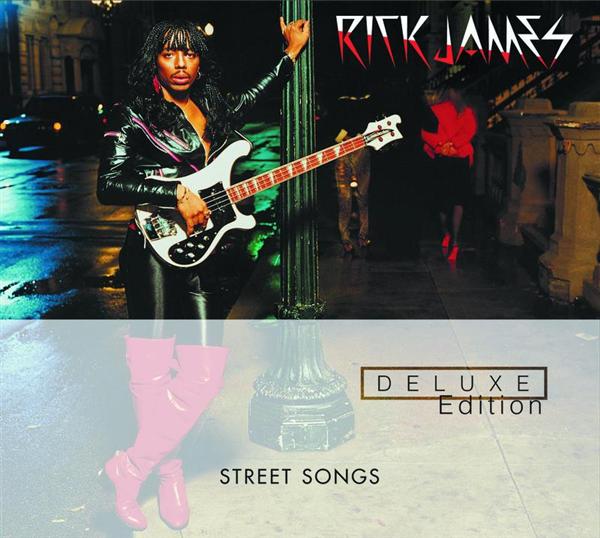
| |
- E-mail - orgNote -  Report post to moderator Report post to moderator |
The singles on this album got all the attention,but this song is one of my favorites...
| |
- E-mail - orgNote -  Report post to moderator Report post to moderator |
"Give It To Me Baby" is playing right now on KBLX. "Funkyslsistah… you ain't funky at all, you just a little ol' prude"!
"It's just my imagination, once again running away with me." | |
- E-mail - orgNote -  Report post to moderator Report post to moderator |
Come now, we gotta Pass the J for him.
I bought this LP on a whim about a year ago. Really effing good songs. I still play pokemon. I play warcraft. And I'm awesome. | |
- E-mail - orgNote -  Report post to moderator Report post to moderator |
I'm a fan 
But Mary Jane and You and I ain't on this one... Stand at the crossroads, and look, and ask for the ancient paths...(Jeremiah 6:16) www.ancientfaithradio.com
dezinonac eb lliw noitulove ehT | |
- E-mail - orgNote -  Report post to moderator Report post to moderator |
interestingly,the song "Fire And Desire" was never released as a single.It received tremendous airplay on R&B stations (and still does!) but Rick and Motown decided not to release it as single,figuring that a popular album track that was getting alot of airplay would boost sales of the album.This strategy paid off.The song remains one of the most played non-singles of all time. | |
- E-mail - orgNote -  Report post to moderator Report post to moderator |
i remember it like yesterday. here in nyc this album was played on our funk station every hour on the hour. im biased on this topic because i got to work with rick James and teena marie on this tour and it was one the best time iv had on the road. | |
- E-mail - orgNote -  Report post to moderator Report post to moderator |
Excerpts from Wax Poetics Issue 23, featuring the making of Rick James’s ghetto symphony, Street Songs.
The following are outtakes. THE PLAYERS Ice Cube: entertainment mogul/recording artist The Fixxers (Quik & AMG): recording artists/production duo Dr. Todd Boyd: author/professor of Critical Studies, USC School of Cinematic Arts Fred Wreck: producer/DJ Chromeo (Pee Thug amp] Dave 1): recording artists/production duo Steven Ivory: author/media culture critic Suzzane dePasse: president, Motown Productions Harry Weinger: producer, Street Songs (20th Anniversary Deluxe Edition) Nancy Leiviska: vice president of video production, Motown Records Levi Ruffin, Jr.: keyboardist, Stone City Band Daniel LeMelle: saxophonist, Stone City Band Word on the Street DR. TODD BOYD: Everybody was listening to that album. People on the streets, people in their cars passing by. By 1981, there weren’t a lot of artists doing concept albums, like Marvin had done or Curtis Mayfield had done. So to hear Street Songs centered around this concept of ghetto life, it represented a different kind of energy. It was deep. ICE CUBE: I remember my friend’s big brother would listen to the album. He was the kind of dude who had the big ‘fro, had the black light in his room with the velvet posters of the Black goddesses. He would play the shit out that record — cassette back then. And it ended up being my favorite record at the time. I bugged my older brothers and sisters to buy it for me. I wasn’t really into singers back then, aside from James Brown, Parliament-Funkadelic, and now Rick James after hearing this record. QUIK: We used to have this old Fischer stereo, and when Street Songs came out, we bought the record, picked our favorite songs, and shared it with the neighborhood. We put the speaker box out the window of our house. Mexicans and Blacks used to dance to all of that shit. FRED WRECK: As far as that era of music that has affected music now: Rick James, Roger Troutman, Parliament, Prince, of course…those guys right there really changed the sound of the ’80s. The ripples of their sound is still being felt today. DAVE 1: We felt that we brought that Rick James attitude to the world of electronic music. When we did our first album, people were into electroclash and New Order sounding stuff. It wasn’t trendy to have a funk, ’80s Black music influence. But we went ahead and did it. STEVEN IVORY: To this day, I compare Street Songs to the pivotal record that any artist has. I call that his Songs in the Key of Life, his Mothership Connection, his 1999, his Thriller, or, better yet, Off the Wall. DAVE 1: To me, Street Songs is Off the Wall’s evil twin. DR. TODD BOYD: Where I give Rick a lot of credit is he basically brought the streets into it. This was the beginning of the crack-cocaine era [and] Reaganomics. Hip-hop came to the West Coast and was really embraced as this street aesthetic. And these West Coast cats love Rick. To the gangsters, he was like an icon. But the iconography is a little confusing. When you think of a thug now, a gangster, there’s a look. It’s hard. But when you look at Rick on the album cover, it’s kind of androgynous and effeminate by contemporary standards. ICE CUBE: It looked street to me, with cops and the prostitutes in the background. But the outfit Rick had on to me was, likeÉI don’t know, man. Ain’t nobody going to walk down the street like that. DR. TODD BOYD: It’s different than the way we look at the representation of that sort street masculinity now. To see this cat with braids — even though cats were wearing cornrows — the knee-high red boots…that’s a little different than a skully and Carhartt gear, you know what I’m saying? When Dave Chappelle did that whole skit on Rick, it was funny seeing him impersonate his style. Because, based on today’s standards, Rick looked more like Prince did. But he’s still embraced by thugs, by hard-core gangsters. Although the iconography’s confusing, because the street images and styles have changed, but Street Songs is certainly a precursor to what would become Straight Outta Compton, AmeriKKKa’s Most Wanted, Illmatic, no question. AMG: It was like hip-hop, but it was straight funk. What’s funny is that rappers were trying to do funk records back then, like the Sugarhill Gang, Grandmaster Flash and the Furious Five. But Street Songs had the pussy records, the fuck-the-police records — it basically had the early elements of an NWA record. ICE CUBE: Street Songs is kind of like the first gangster record. I felt like he was talking to me. It was the most hard-core record you could get at the time. There wasn’t anything else that I could remember — maybe a couple of rap records was out — but as far as R&B, this was about as hard and on the edge as you could get. PEE THUGG: Man, it’s much harder than a lot of shit that’s out today. Dude talks about all the realities of his life. All these things still apply today in our current street life. FRED WRECK: If that album came out right now, it would be such a street album. It’s a timeless street album. Street Songs is in the same category as DoggyStyle, Straight Outta Compton, Eazy-Duz-It. But in an R&B, soulful, gospel, funk way. AMG: Rick was speaking to folks that Prince wasn’t speaking to, Zapp wasn’t speaking to. He spoke to the niggas. When we were kids, we couldn’t wait until your mama left the house so you could really bump the record. QUIK: It wasn’t an alienating record. It invited everybody in. It spoke of the ghetto — police, weed, freaky bitches, the parties. And then he had the ballads for his good girls. PEE THUGG: Rick James’s attitude gave punch and realness to his records. It’s a part of his music, perfectly balanced; it’s a whole. He was always respected as a artist/musician, but I think the more recent post-Chappelle interest in Rick made too much of it, not concentrating on the music enough. That was a big disappointment to me. Everybody was too focused on the popular “I’m Rick James, bitch.” They were too busy talking about the bad things like his cocaine addiction (which isn’t funny) and flamboyant persona, completely forgetting the music behind Mary Jane Girls, the Stone City Band, Teena Marie, and Rick James himself. MTV SUZANNE DEPASSE: For most of the time I was involved with the [Motown] record company, as opposed to the production company, we didn’t have the whole video production resource to help sell the music. NANCY LEIVISKA: It was always difficult to get any visuals done in the late ’70s, early ’80s. The mindset of the top executives at the label was, “visuals don’t sell records. Radio play sells records.” SUZANNE DEPASSE: But Rick was at the birth of that transition for the company. What Motown tried to do with Rick was support him with what he wanted to do, because he earned the right to do it. He had delivered on himself; he later delivered with the Mary Jane Girls; he delivered on the Temptations; he delivered with Teena Marie. The imagination he brought to his music video concepts — Nancy Leiviska was also very involved with that — were always infused with his personality. So his stuff had a way of just being totally infectious. NANCY LEIVISKA: Out of all the other artists, Rick was the most actively involved in the visual process, from inception to completion, even discussing production costs. When Motown gave us the green light to film “Super Freak” and “Give It to Me Baby,” our budget was $10,000 for each video. That’s a fraction of what they cost these days. When we started to discuss the visual concepts for the clips, Rick and I wanted to emulate the popular British aesthetic of the time: stark white backgrounds, minimalist sets. In “Super Freak,” we just had the door as a disembodied prop. That was shot on A&M’s soundstage. I filmed both videos on 16 mm film, a rarity since most videos were just that — shot on videotape. “Give It to Me Baby” was produced like a movie. We had storyboards, moving dolly shots. It was essentially a short film. Motown submitted the clips to MTV. Early on, the station made it very clear that Motown was not going to be one of their clients. But MTV explained that they were creating another video outlet for urban artists, like a VH1 type of thing. MTV wanted video programming to be like that of radio, with different formats and different things. My argument was that MTV was playing the hits — all hits, across-the-board hits. Rick James was not just number two on the Black charts or R&B charts. He was number two on the pop charts. So why in the hell weren’t they playing him? Rick was livid. I was definitely on his side, but then Rick started saying, “I’m going to sue MTV…and you better back me up Nancy.” But you know what? I was the head of the video department for all Motown artists. I didn’t want to risk the possibility of MTV banning Motown forever. By 1984, the first Motown video played in heavy rotation was Rockwell’s “Somebody’s Watching Me,” which I also produced and directed. I made this a highly conceptual video. By that time, due in part to Thriller, MTV was looking for those high production values. They didn’t want performance clips. Even though “Super Freak” had a concept, it was still more of a performance clip nonetheless. 20th Anniversary RICK JAMES: [In 2001], Universal Music released Street Songs: 20th Anniversary Deluxe Edition. It’s been [remastered and] digitized. The exciting part is that it’s a double CD, and one [of the discs] is a live show. (note 1) NANCY LEIVISKA: Rick wanted to record and film one of his shows from the Street Tour. At the tour’s stop in Long Beach, California, in July of 1981, I arranged for a six-camera film crew and twenty-four-track mobile recording unit to record what was to be a live album and home-video release. Rick wasn’t pleased with his vocals when he heard the playback. He wanted to go into the studio to touch up some of them, but we already went over budget with the film and recording units. Motown didn’t want to spend any more money, so they shelved the home-video project indefinitely and live album for twenty years. HARRY WEINGER: I went ahead and produced the live album without Rick…with some trepidation, since as he often reminded me, “I do everything, yo!” Most live albums are sweetened in the studio, to fix bum notes or stray harmonies. This required none of that. It was almost easy to mix. Everything is “right there.” LEVI RUFFIN, JR.: I heard all kinds of live albums where they went in to sweeten this, sweeten that, and all that kind of shit. We never had a chance to do it. So we went raw with it anyway, and it still went well. If we did have the chance to redo parts in the studio, it would have been incredible. But I’m still proud of it, the way they released it. HARRY WEINGER: I felt Rick ought to be involved as best he could, even though he was having some personal upheaval at the time. So I had the chance to play it for him at one point. I was having a hard time deciding whether his vocals, which are rough due to him running around and running things at every level, should be up or down in the mix. He listened for about a minute and thought it sounded great, and agreed that his voice should be “part of the band” — more integrated with the overall sound than floating above the tracks. He wanted it to be about the moment on stage, the overall vibe. And he was right. DANIEL LEMELLE: Certain records set a standard and become more than classics, because they last so long. It becomes like the best piece of Mozart, the best piece of Beethoven. You start to hear little pieces of that thing in everything else. It doesn’t become just funk or just pop it becomes that one word — classic. | |
- E-mail - orgNote -  Report post to moderator Report post to moderator |
Photo Shoot for the Street Songs LP, shot on the Universal Studios Back Lot (New York Street) in Hollywood, CA.
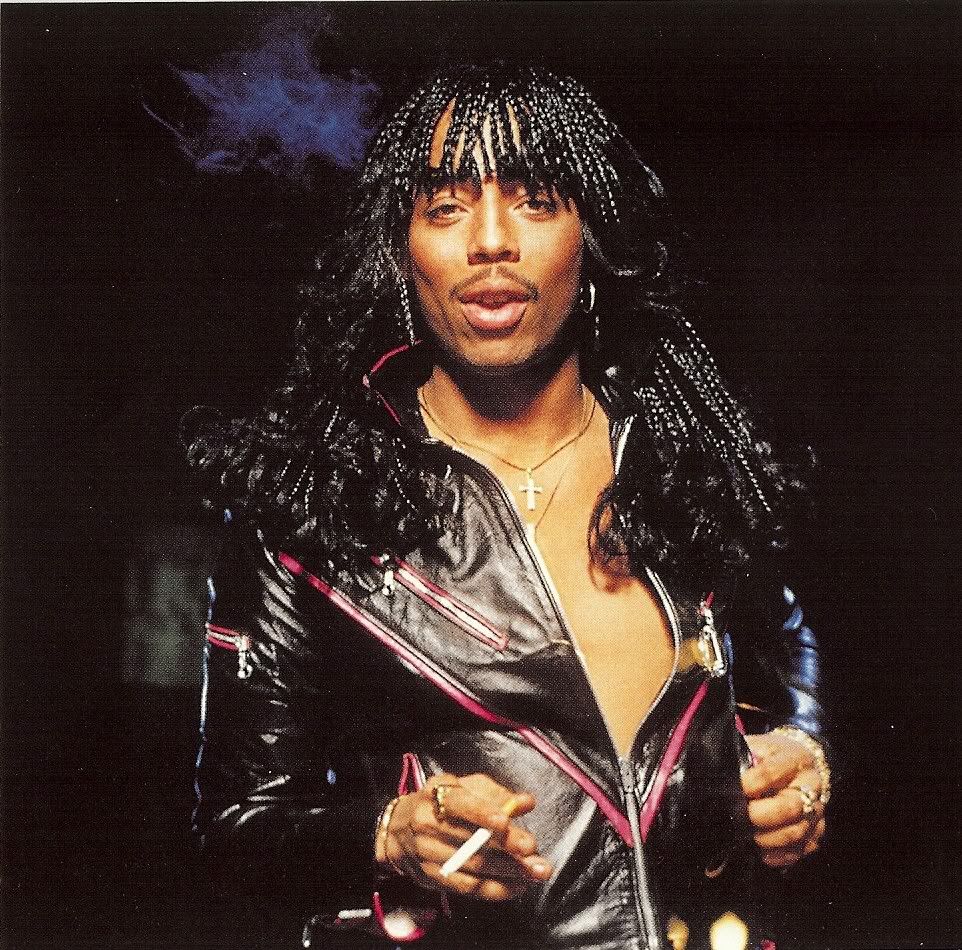

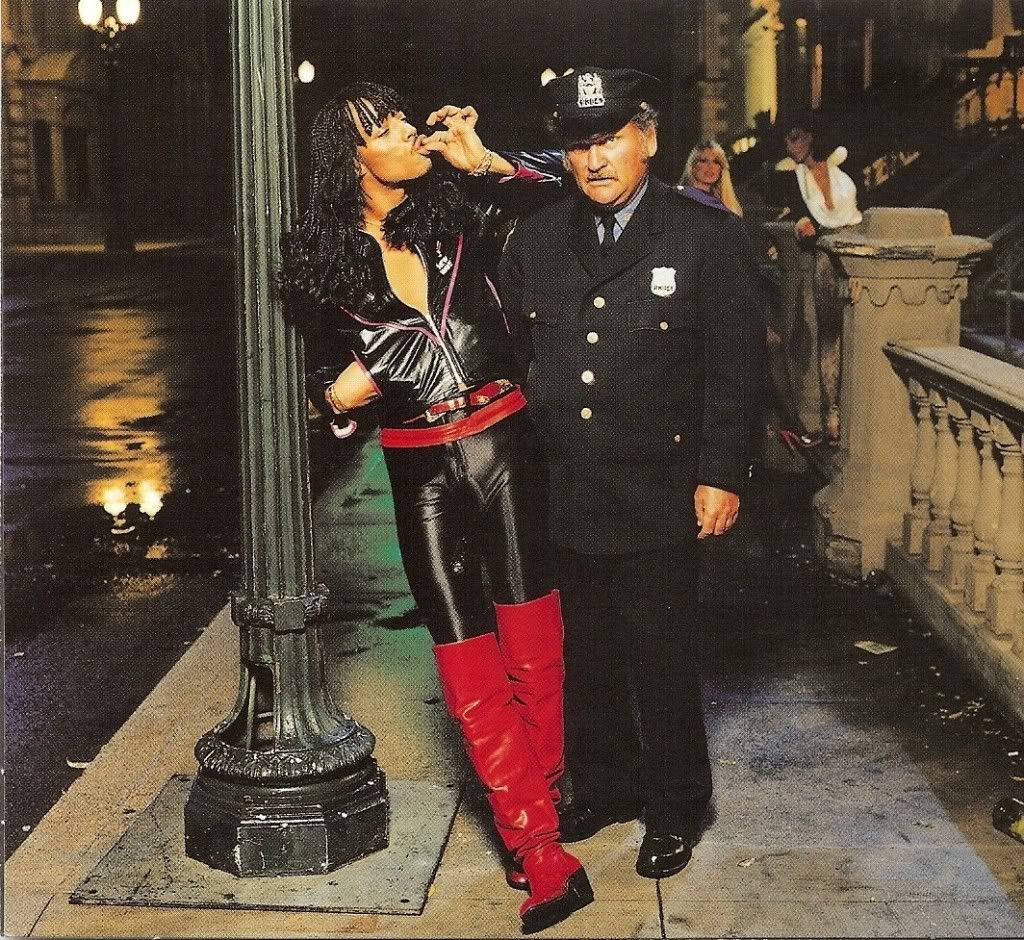
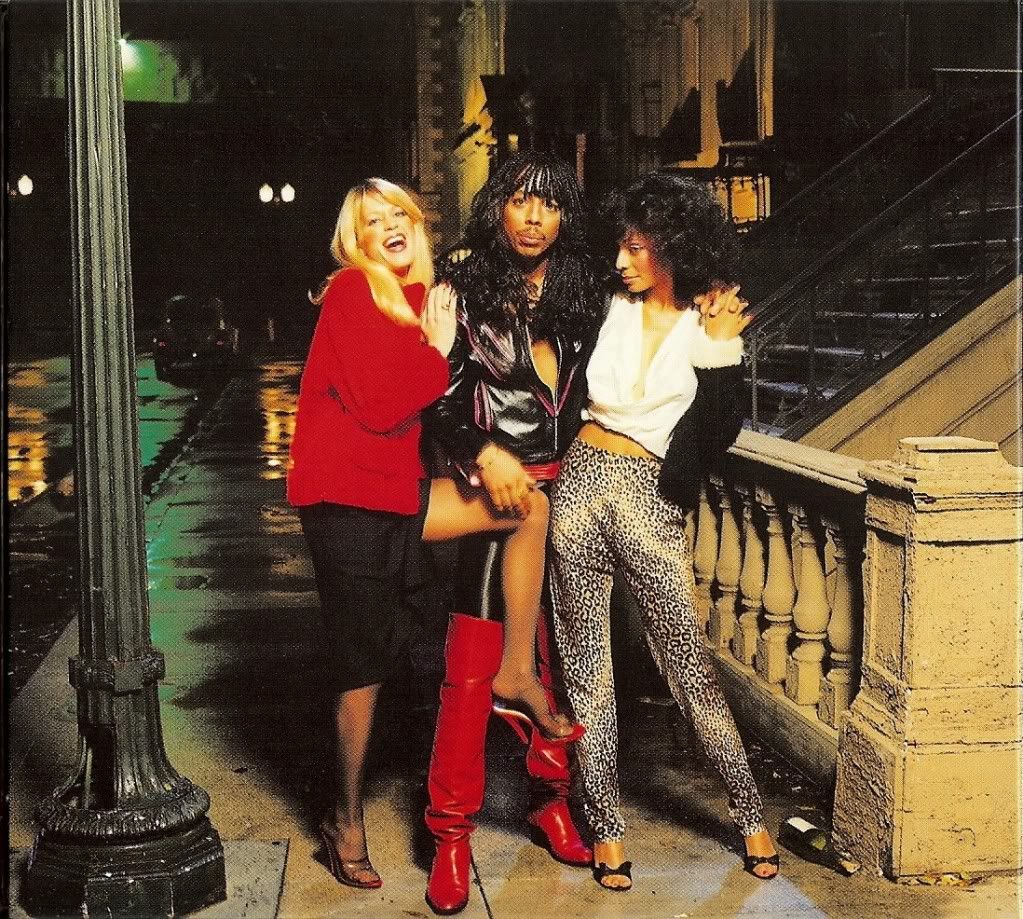
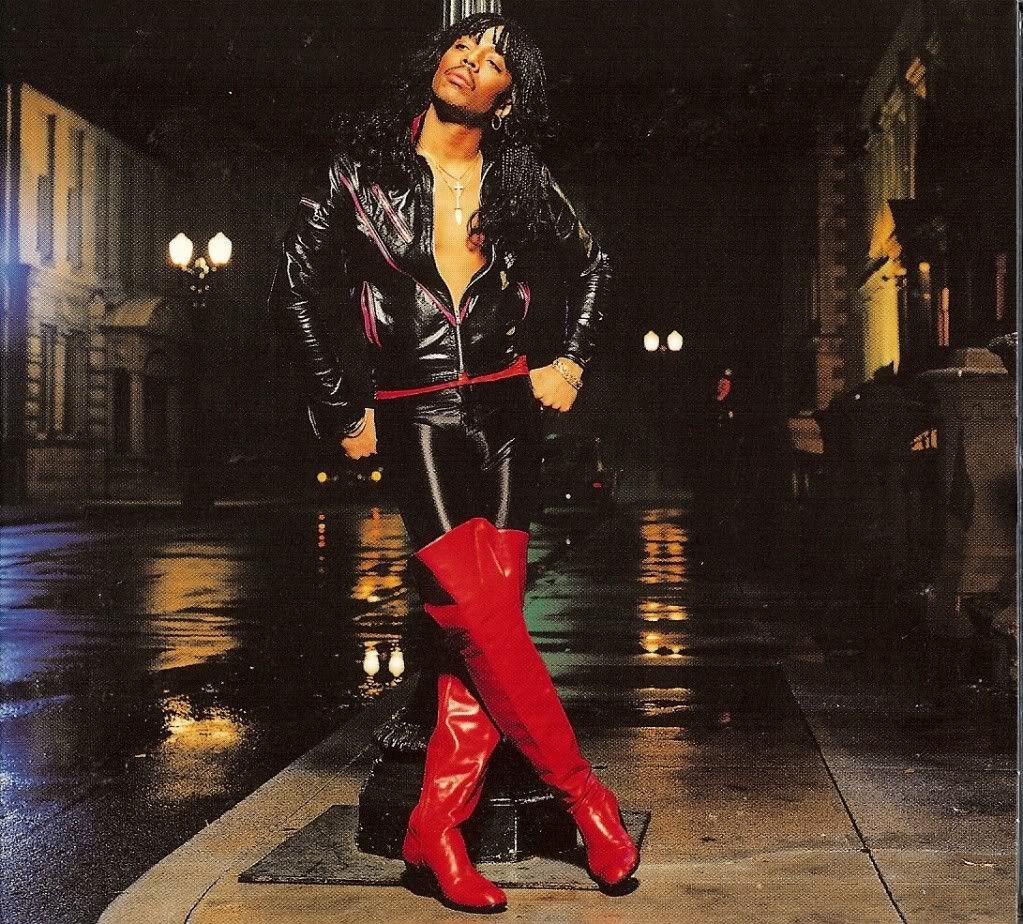
[Edited 4/8/10 9:14am] [Edited 4/8/10 9:15am] | |
- E-mail - orgNote -  Report post to moderator Report post to moderator |
Perfect album from the music, all the way down to the album artwork. Andy is a four letter word. | |
- E-mail - orgNote -  Report post to moderator Report post to moderator |
^ "Remember, one man's filler is another man's killer" -- Haystack | |
- E-mail - orgNote -  Report post to moderator Report post to moderator |
This album is really top-notch. Feel free to join in the Prince Album Poll 2018! Let'a celebrate his legacy by counting down the most beloved Prince albums, as decided by you! | |
- E-mail - orgNote -  Report post to moderator Report post to moderator |
A true classic. | |
- E-mail - orgNote -  Report post to moderator Report post to moderator |
You guys better vote for it in the Albums of the 80s Poll! Feel free to join in the Prince Album Poll 2018! Let'a celebrate his legacy by counting down the most beloved Prince albums, as decided by you! | |
- E-mail - orgNote -  Report post to moderator Report post to moderator |
This was the MUST-HAVE album in the summer of '81.Everywhere you went,people were playing this record. | |
- E-mail - orgNote -  Report post to moderator Report post to moderator |
 New topic
New topic Printable
Printable